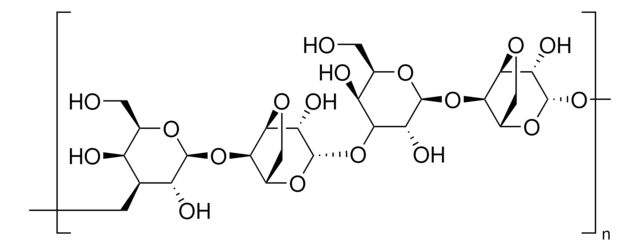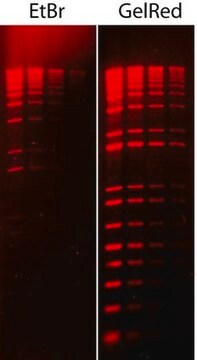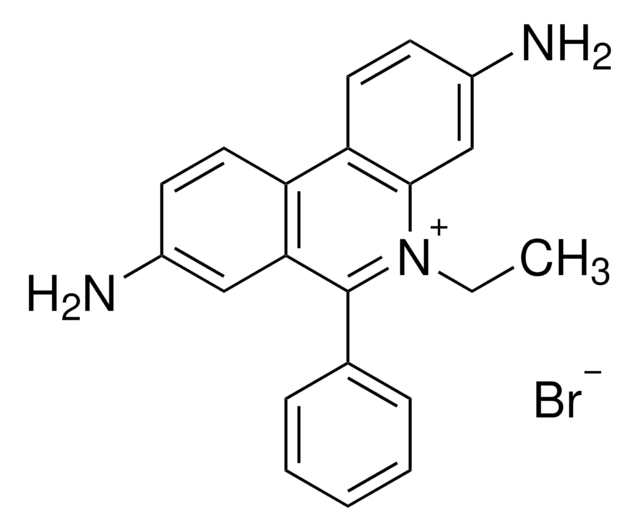A7431
Agarose
BioReagent, for molecular biology, Wide range/Standard 3:1
Synonym(s):
3,6-Anhydro-α-L-galacto-β-D-galactan
About This Item
Recommended Products
biological source
algae (marine)
Quality Level
grade
for molecular biology
product line
BioReagent
form
powder
technique(s)
electrophoresis: suitable
EEO
≤0.13
mp
≤90 °C
transition temp
gel point 32.5-38 °C (4% gel)
gel strength
≥1200 g/cm2 (4% gel)
anion traces
sulfate (SO42-): ≤0.15%
foreign activity
DNase, RNase, NICKase, none detected
InChI
1S/C24H38O19/c25-1-5-9(27)11(29)12(30)22(38-5)41-17-8-4-36-20(17)15(33)24(40-8)43-18-10(28)6(2-26)39-23(14(18)32)42-16-7-3-35-19(16)13(31)21(34)37-7/h5-34H,1-4H2/t5-,6-,7+,8+,9+,10+,11+,12-,13+,14-,15+,16-,17-,18+,19+,20+,21-,22+,23+,24+/m1/s1
InChI key
MJQHZNBUODTQTK-WKGBVCLCSA-N
Looking for similar products? Visit Product Comparison Guide
Related Categories
Application
Analysis Note
Sulfate content - used as an indicator of purity, since sulfate is the major ionic group present.
Gel strength - the force that must be applied to a gel to cause it to fracture.
Gel point - the temperature at which an aqueous agarose solution forms a gel as it cools. Agarose solutions exhibit hysteresis in the liquid-to-gel transition - that is, their gel point is not the same as their melting temperature.
Electroendosmosis (EEO) - a movement of liquid through the gel. Anionic groups in an agarose gel are affixed to the matrix and cannot move, but dissociable counter cations can migrate toward the cathode in the matrix, giving rise to EEO. Since electrophoretic movement of biopolymers is usually toward the anode, EEO can disrupt separations because of internal convection.
Storage Class
11 - Combustible Solids
wgk_germany
WGK 1
flash_point_f
Not applicable
flash_point_c
Not applicable
ppe
Eyeshields, Gloves, type N95 (US)
Choose from one of the most recent versions:
Already Own This Product?
Find documentation for the products that you have recently purchased in the Document Library.
Customers Also Viewed
Our team of scientists has experience in all areas of research including Life Science, Material Science, Chemical Synthesis, Chromatography, Analytical and many others.
Contact Technical Service



